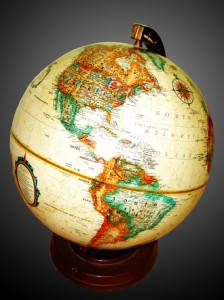
Three ways the Caribbean can strengthen financing for private companies
May 20th, 2016
by Therese Turner-Jones
Growing up in The Bahamas, I remember my grandmother’s asue. There weren’t any banks where she lived on the island of Inagua, and even if there had been, it wasn’t customary for women to frequent them. To adapt, women (and sometimes men) formed their own informal savings groups, known as asues. As her group’s custodian, my grandmother collected a weekly contribution from participants who would then withdraw money on special occasions to cover school fees or larger purchases.
Asues, susus or panderos, as they are known in Spanish-speaking countries, promote financial education, savings, social inclusion and investment, and in Latin America and the Caribbean they are still alive and well. In fact, 18 percent of people in the region still seek loans from family, friends or informal lenders.
However, for companies on a growth trajectory, these informal options may not be enough. To improve their access to finance, I look to the banking sector for solutions.
If an emerging firm wants to buy cutting-edge technology, invest in research and development or expand its skilled labor, its first port of call is usually a bank. Yet, while 45 percent of firms in Latin America and the Caribbean use banks to finance working capital, in The Bahamas, it’s only 15 percent.
Banks can be powerful engines of development, but there is still untapped potential for downscaling and product diversification. By creating new financial products that promote social inclusion and environmental sustainability, banks can help firms grow while increasing their own profits. The Inter-American Investment Corporation (IIC) currently supports more than 1 million micro, small and medium-sized enterprises (MSMEs) through its portfolio of 198 transactions with financial institutions.
After securing financing, the next step for a firm is finding equity investments. That, however, is far from the norm. Regionally, investments financed by equity hover around 4%, and in The Bahamas, that number is halved. The IIC is increasing its product offerings in this segment – both through funds and direct capital investments.
The third step in a company’s growth is to diversify funding via fixed-income markets. Fixed income provides firms with a diversity of maturities, interest rates, ticket sizes and risk profiles depending on their circumstances. Longer tenors are especially critical to firms in agriculture, manufacturing and service sectors.
While private debt issuance in local markets has recovered since its low in 2008, it is still a third of what you find in developed markets like the US. One challenge is that any issuance with a rating lower than a local AAA generally struggles to access markets. And most of our region’s private debt is creditworthy but not AAA. The more bonds are issued, the more references we have to price future securities.
One last step in a company’s growth trajectory is a listing on the local stock exchange, where investors can purchase shares and take equity positions. The Mercado Integrado Latinoamericano (MILA) is the association of stock exchanges of Chile, Colombia and Peru. Together the three exchanges (and soon Mexico) aim to give investors a greater supply of securities, issuers and sources of funding. In the Caribbean, IPOs have benefited GraceKennedy, Commonwealth Bank, and Goddard’s Enterprises. Yet, the reality is that only very few companies get there.
So how do we smooth the path for companies?
In order to strengthen access to financing, we first need to deepen local capital markets. This is especially important for Caribbean family-owned businesses, many of which have comparative advantages and growth potential but remain wary of public audits, ownership, and scrutiny.
Second is testing new structures. The IIC is increasing participation of institutional investors, sovereign wealth funds and impact investors in its projects. Social impact bonds could bring trillions from investors seeking sound investments that boost social and environmental sustainability.
And finally, we maintain an active dialogue with governments through the public sector of the Inter-American Development Bank (IDB), which helps us address regulatory issues and create an environment conducive to private-sector development.
Companies in the Caribbean have come a long way from local asues to where they are today. Our goal is to keep enabling their growth while scaling up our efforts to create positive impact.
Tags: asue, bank loan, Caribbean business, Commonwealth Bank, environmental sustainability, financial products, Goddard’s Enterprises, GraceKennedy, IIC, Inagua, loan, local capital markets, Mercado Integrado Latinoamericano, social impact bonds, the Bahamas, transaction
The Gleaner reserves the right not to publish comments that may be deemed libelous, derogatory or indecent.
To respond to The Gleaner please use the feedback form.
- Three ways the Caribbean can strengthen financing for private companies
- Learning about Jamaica’s Forests by Hiking the Blue Mountains
- Making People Happy
- US Supreme Court: One Less Known Example of How a Supreme Court Decision, Shapes Up Judiciary Reality in the Caribbean
- Crime in Paradise: Preview of Forthcoming IDB Study on Crime in the Caribbean
- Caribbean Diaspora: How Can They Finance Development in the Region?
- Zika Virus and the Economic and Human Reproductive Health Implications for the Caribbean
- Proper Solid Waste Management Involves all of us
- Victimization surveys: 3 common mistakes to avoid
- Social Innovation: The way forward for Civil Society Organizations


